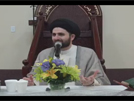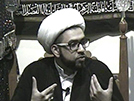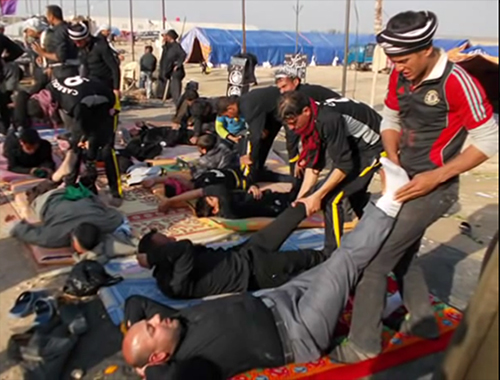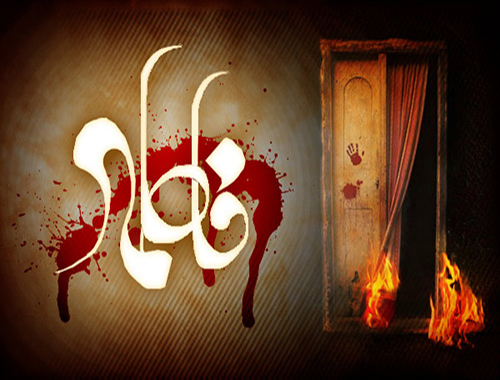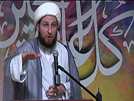Virtues of Hajj
- Details
- Hits: 2098
Virtues of Hajj
Just as neglecting Hajj is severely punished its fulfillment is greatly rewarded with numerous benefits for this life as well as hereafter. Traditions mention a great number of benefits some of which are presented below.
The Messenger of Allah (S) says,
“People who perform Hajj are of Three kinds. The first kind are those who have greater position than others, and all their past and future sins are forgiven, and Allah shall protect them from the chastisement of the grave. The second group is that whose only past misdeeds are condoned and the third group is such that their wealth and children will remain safe till they return from Hajj.”
(al-KÄfi)
Another tradition speaks of a group who go for Hajj but do not fulfill all the conditions. Their hajj is not accepted and they do not qualify for any rewards in the hereafter but till the time they return their families will remain safe.
A person asked Imam Ja’far as-Sadiq (a.s.) in the Masjidul HarÄm as to who is the greatest sinner? Imam (a.s.) replied,
“One who stands at mawquf (Between Arafat and Muzdalifah), walks between Safa and Marwa and prays at Maqam al- IbrahÄ«m and even after this he thinks Allah has not forgiven him. He is the greatest sinner.” (Because he has despaired of Allah’s Mercy) and as we have stated before despairing of Allah’s Mercy is a greater sin).
Imam Ja’far as-Sadiq (a.s.) relates from his forefathers that a Bedouin came to the Holy Prophet (S) and said, “O Messenger of Allah (S)! I started for hajj but could not reach it though I am wealthy. So tell me how much I should spend to obtain the TawÄb equal to it?”
The Messenger of Allah (S) said,
“Look at Mt. Abu Qubais, If the whole of it turns to gold and comes to your possession and you spend all of it in the way of Allah you would still not be able to reach the status of one who has performed Hajj.”
Then he (S) said,
“When a person decides to go for Hajj, after this for every item that he pick up and puts down he is rewarded ten times and he is raised ten degrees. When he mounts the camel each of its step is just as stated before. When he performs the tawaf of Kaba he is purified of all sins. After he has finished running between Safa and Marwah he is again cleansed from sins. Again when he stays at Arafat his sins are washed. When he stays at Masharil HarÄm he is purified of bad deeds. When he stones the satans he is again forgiven the sins.”
In this way the Messenger of Allah (S) mentioned each stage and continued saying that the person is purified of sins. Then he (S) told the Bedouin,
“How can you reach the level of one who performs Hajj?”
After this Imam Sadiq (a.s.) says,
“His sins are not recorded for four months and if he does not commit a greater sin, only good deeds are recorded during this period.”
(Tahzīb, Vol. 5, page. 19)
Muhaddith Faiz commenting on the above tradition of the Holy Prophet (S) says that, there are different classes of sins, based on their terrible consequences, their blackening of the heart, their magnitude, etc. and what the tradition probably implies is that man is purified of particular kinds of sins at the different stages of Hajj till he is cleansed of every kind of sin. There are traditions which mention that there are some sins which are only forgiven when the Haji camps at Arafat on the day of Arafah.
Another tradition says,
“People who come for Hajj and Umrah are guests of Allah. If they ask Allah for anything He grants it to them, if they call Him He replies. If they recommend for others He accepts it. If they remain quiet He gives without their asking and for each Dirham they spend on it, He shall give them a thousand.”
The different types of sins are material, mental or physical in nature. Physical sins may verbal or practical. Of the practical sins, there are as many sins as can be associated with the different parts of the body. These sins are of different magnitude. Some invite calamities, some nullify supplications, some prevent rains, some obstruct sustenance and others cause sudden death as mentioned in the supplication of Kumayl. So each of the Hajj rituals is prescribed for a particular kind of sin. The effect of some sins is not known to anyone except Allah. The sins which are forgiven in Arafat are probably hard-heartedness, neglect or staying at the place of sin, etc.
(Wafi)
The narration continues,
“When the pilgrim reaches Makkah, Allah appoints two guardian angels for him who protect him during Tawaf, Prayer and Say’y. When on the day of Arafah he camps, they slap his shoulders and say that Allah has forgiven all his previous sins, now he should worry about his future.”

